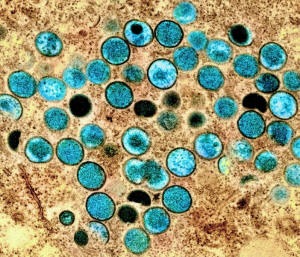WHO, partners meet on mpox, hoping to avoid COVID failures on fair
medical access
 Send a link to a friend
Send a link to a friend
 [August 17, 2024]
By Jennifer Rigby [August 17, 2024]
By Jennifer Rigby
LONDON (Reuters) -The World Health Organization was due to host an
emergency meeting on Friday to discuss ways to ensure fair global access
to tests, treatments and vaccines for mpox, a leading official said, as
the viral infection spreads in parts of Africa and beyond.
The meeting would be attended by members of an alliance of health
experts who oversaw the global response to COVID-19 and include global
health agencies such as the Bill & Melinda Gates Foundation and Gavi,
the Vaccine Alliance.
They will discuss how to ensure that failures during the COVID pandemic
over ensuring equal access to medical treatments, tests and vaccines are
not repeated with the mpox outbreak, Ayoade Alakija, chair of the
meeting and a WHO special envoy, said.
The U.N. health agency declared a global health emergency for mpox on
Wednesday after a huge outbreak in Democratic Republic of Congo spread
into nearby countries. On Thursday, Sweden reported the first case
outside Africa linked to the outbreak.
“We failed on product access last time, but we have learned those
lessons ... and I will make sure that equity (equal access) is the first
thing we are thinking about (now),” Alakija said.
During COVID, many low-income countries were left behind as high-income
countries snapped up medical tools to fight the virus, especially
vaccines. The WHO-led alliance did ultimately see nearly two billion
vaccines, hundreds of millions of tests, and hundreds of thousands of
treatments delivered worldwide.
[to top of second column]
|

An undated colorized transmission electron micrograph of mpox virus
particles (teal) found within an infected cell (brown) cultured in
the laboratory, captured at the National Institute of Allergy and
Infectious Diseases (NIAID) Integrated Research Facility (IRF) in
Fort Detrick, Maryland. NIAID/Handout via REUTERS
 Mpox was also declared a global
health emergency in 2022, and access was again unequal. For example,
vaccines were widely available in regions like Europe and the United
States, but there are still none in Africa two years later despite
the severity of the ongoing outbreaks.
Alakija stressed that battling the disease was not all about
vaccines, though, as public health measures such as awareness
campaigns could also help communities protect themselves, in a
similar vein to the HIV response.
(Reporting by Jennifer RigbyEditing by Susan Fenton and Frances
Kerry)
[© 2024 Thomson Reuters. All rights reserved.]This material may not be published,
broadcast, rewritten or redistributed.
Thompson Reuters is solely responsible for this content.
 |